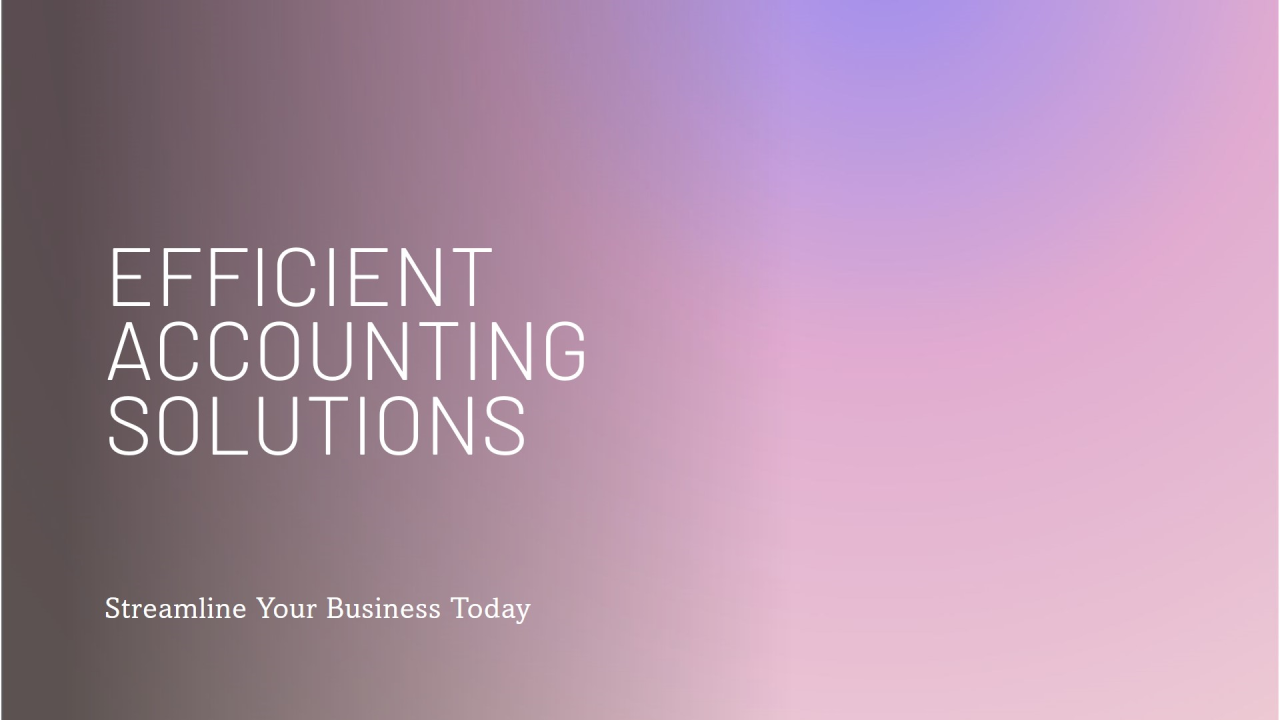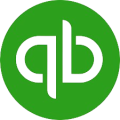In today’s fast-paced business environment, efficient accounting systems are essential for companies of all sizes. Whether you run a small startup or a large corporation, an effective accounting solution can streamline operations, reduce manual work, and provide real-time financial insights. This article will explore the benefits of adopting modern accounting solutions and how they can enhance your business.
What Are Accounting Solutions?
Accounting solutions are software systems designed to manage a company’s financial processes, including bookkeeping, invoicing, payroll, and tax compliance. These systems help automate repetitive tasks, organize financial data, and provide accurate reports for better decision-making. Examples of popular accounting software include QuickBooks, Xero, and FreshBooks.
Key Features of Accounting Solutions
1. Automation of Routine Tasks:
Accounting solutions automate day-to-day financial tasks, such as billing, invoicing, and tracking expenses. This reduces the need for manual data entry and ensures accuracy.
2. Real-time Financial Data:
With cloud-based accounting software, businesses can access up-to-date financial data at any time, from anywhere. This helps managers make informed decisions based on real-time insights.
3. Integration with Other Business Systems:
Many accounting solutions integrate seamlessly with other tools like CRM (Customer Relationship Management) and ERP (Enterprise Resource Planning) systems. This enhances efficiency and allows for a more comprehensive view of business performance.
4. Compliance and Reporting:
Accounting software simplifies tax compliance by automatically calculating taxes and generating necessary reports. Businesses can stay on top of regulatory requirements and avoid costly penalties.
5. Security and Data Protection:
Cloud-based accounting solutions offer secure storage for financial data, safeguarding sensitive information from unauthorized access. Encryption and multi-factor authentication ensure that data remains protected.
Benefits of Using Accounting Solutions
1. Cost-Effective:
Automating financial processes reduces the need for a large accounting team, saving both time and money. In addition, accounting errors that lead to financial losses can be minimized with reliable software.
2. Improved Decision-Making:
Accurate financial data is critical for making strategic decisions. Accounting solutions offer detailed reports on revenue, expenses, and profits, enabling business owners to forecast future growth, manage cash flow, and allocate resources effectively.
3. Time-Saving:
By automating routine tasks, accounting solutions free up valuable time for employees to focus on higher-level strategic work, rather than spending hours on repetitive bookkeeping tasks.
4. Scalability:
As a business grows, its accounting needs become more complex. Most accounting software solutions offer scalable options, allowing businesses to add new features and functionalities as needed.
5. Enhanced Collaboration:
Many accounting systems provide multi-user access, enabling accountants, managers, and team members to collaborate more effectively. This improves workflow and ensures that everyone is working with the same accurate financial data.
Choosing the Right Accounting Solution
When selecting an accounting solution for your business, it’s important to consider the following factors:
1. Business Size and Needs:
For small businesses, basic accounting software may be sufficient. Larger enterprises may need more comprehensive solutions that offer advanced features like inventory management, payroll, and project tracking.
2. User Experience:
The software should be user-friendly, allowing both accounting professionals and non-accountants to navigate and use the system effectively.
3. Support and Training:
Choose a solution that offers robust customer support and training resources. This ensures a smooth transition for your team and helps troubleshoot any issues that may arise.
4. Cost:
Compare the pricing structures of various solutions to ensure they fit within your budget. Some software offers a subscription-based model, while others may require a one-time purchase.
5. Security Features:
Security should be a top priority when choosing an accounting solution. Look for systems that offer strong encryption, regular backups, and compliance with data protection regulations.
Conclusion
Incorporating an accounting solution into your business can lead to significant improvements in efficiency, accuracy, and profitability. By automating financial tasks and providing real-time insights, these systems allow businesses to focus on what matters most—growth and innovation. Whether you’re just starting out or looking to upgrade your existing processes, choosing the right accounting solution can set your business up forual work, and provide real-time financial insights. This article will explore the benefits of adopting modern accounting solutions and how they can enhance your business.
What Are Accounting Solutions?
Accounting solutions are software systems designed to manage a company’s financial processes, including bookkeeping, invoicing, payroll, and tax compliance. These systems help automate repetitive tasks, organize financial data, and provide accurate reports for better decision-making. Examples of popular accounting software include QuickBooks, Xero, and FreshBooks.
Key Features of Accounting Solutions
1. Automation of Routine Tasks:
Accounting solutions automate day-to-day financial tasks, such as billing, invoicing, and tracking expenses. This reduces the need for manual data entry and ensures accuracy.
2. Real-time Financial Data:
With cloud-based accounting software, businesses can access up-to-date financial data at any time, from anywhere. This helps managers make informed decisions based on real-time insights.
3. Integration with Other Business Systems:
Many accounting solutions integrate seamlessly with other tools like CRM (Customer Relationship Management) and ERP (Enterprise Resource Planning) systems. This enhances efficiency and allows for a more comprehensive view of business performance.
4. Compliance and Reporting:
Accounting software simplifies tax compliance by automatically calculating taxes and generating necessary reports. Businesses can stay on top of regulatory requirements and avoid costly penalties.
5. Security and Data Protection:
Cloud-based accounting solutions offer secure storage for financial data, safeguarding sensitive information from unauthorized access. Encryption and multi-factor authentication ensure that data remains protected.
Benefits of Using Accounting Solutions
1. Cost-Effective:
Automating financial processes reduces the need for a large accounting team, saving both time and money. In addition, accounting errors that lead to financial losses can be minimized with reliable software.
2. Improved Decision-Making:
Accurate financial data is critical for making strategic decisions. Accounting solutions offer detailed reports on revenue, expenses, and profits, enabling business owners to forecast future growth, manage cash flow, and allocate resources effectively.
3. Time-Saving:
By automating routine tasks, accounting solutions free up valuable time for employees to focus on higher-level strategic work, rather than spending hours on repetitive bookkeeping tasks.
4. Scalability:
As a business grows, its accounting needs become more complex. Most accounting software solutions offer scalable options, allowing businesses to add new features and functionalities as needed.
5. Enhanced Collaboration:
Many accounting systems provide multi-user access, enabling accountants, managers, and team members to collaborate more effectively. This improves workflow and ensures that everyone is working with the same accurate financial data.
Choosing the Right Accounting Solution
When selecting an accounting solution for your business, it’s important to consider the following factors:
1. Business Size and Needs:
For small businesses, basic accounting software may be sufficient. Larger enterprises may need more comprehensive solutions that offer advanced features like inventory management, payroll, and project tracking.
2. User Experience:
The software should be user-friendly, allowing both accounting professionals and non-accountants to navigate and use the system effectively.
3. Support and Training:
Choose a solution that offers robust customer support and training resources. This ensures a smooth transition for your team and helps troubleshoot any issues that may arise.
4. Cost:
Compare the pricing structures of various solutions to ensure they fit within your budget. Some software offers a subscription-based model, while others may require a one-time purchase.
5. Security Features:
Security should be a top priority when choosing an accounting solution. Look for systems that offer strong encryption, regular backups, and compliance with data protection regulations.








